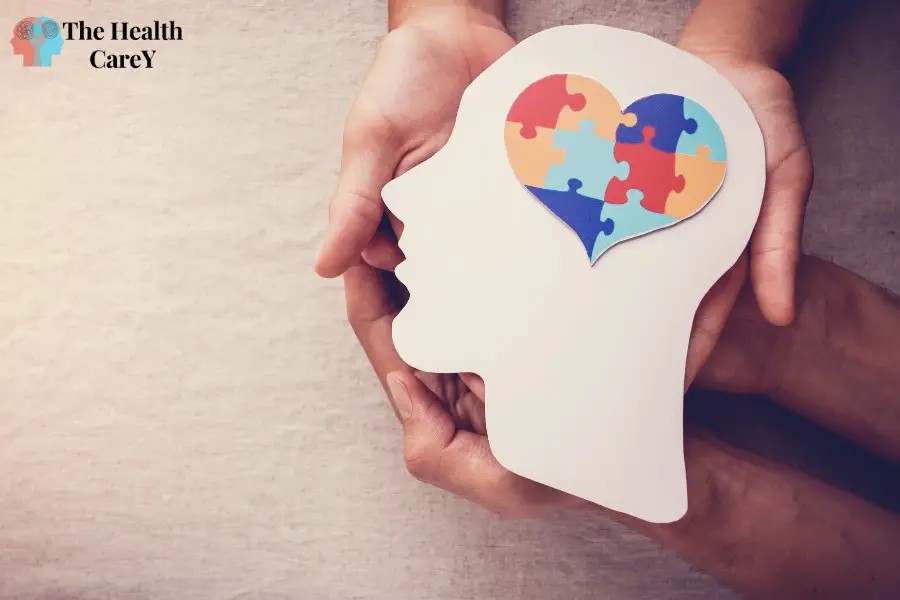Men’s mental health is an important topic that deserves attention and recognition. June is recognized as Men’s Health Month, and Mental Health America is proud to recognize this month as an opportunity to bring attention to men’s mental health. This month, we aim to raise awareness about men’s unique mental health challenges and encourage them to prioritize their mental well-being.
It’s important to recognize that mental health issues can affect anyone, regardless of gender. However, men may be less likely to seek help or talk about their struggles with mental health. This can be due to societal expectations that men should be strong and self-sufficient and a lack of awareness about the signs and symptoms of mental health issues. Men’s Health Month serves as a reminder that it’s okay to ask for help and prioritize your mental well-being.
Throughout this month, Mental Health America encourages men to care for their mental health, such as seeking professional help, practicing self-care, and talking to loved ones about their struggles. By recognizing the importance of men’s mental health and taking action to prioritize it, we can work towards a future where mental health is treated with the same importance as physical health.
What is Men’s Mental Health Month?
Men’s Mental Health Month is an annual observance in June. During this month, awareness is raised about men’s mental health issues and the importance of taking care of one’s mental health.
Men’s Mental Health Month aims to encourage men to talk about their mental health and seek help when needed. It is also an opportunity to educate the public about men’s unique mental health challenges and promote mental health care and resources.
According to Mental Health America, men are less likely than women to seek help for mental health issues. This is partly due to social stigmas and expectations around masculinity that can make it difficult for men to talk about their emotions and seek help. However, it is important to recognize that seeking help for mental health issues is a sign of strength, not weakness.
During Men’s Mental Health Month, various events and activities take place to raise awareness about men’s mental health. These may include educational seminars, workshops, and support groups. It is also common for mental health organizations to share resources and information on social media and other platforms to reach a wider audience.
If you or someone you know is struggling with mental health issues, it is important to seek help. Many resources are available, including counseling, therapy, and support groups. Taking care of your mental health is just as important as your physical health, and seeking help is a crucial step towards living a happier and healthier life.
Why is Men’s Mental Health Month Important?
Men’s Mental Health Month is an important campaign that aims to raise awareness about men’s mental health issues. It is celebrated every June, and it is an opportunity to encourage men to take care of their mental health, seek support when needed, and reduce the stigma surrounding mental illness.
Mental health is an essential aspect of overall health, and it is crucial to recognize that men are just as likely to experience mental health issues as women. However, men are less likely to seek help for mental health problems due to social norms, a reluctance to talk, and downplaying symptoms. This can lead to untreated mental illness, which can have severe consequences, including suicide.
Men’s Mental Health Month aims to encourage men to seek help for mental health issues and provide them with the resources and support they need to manage their mental health effectively. It is also a time to educate the public about mental health’s importance and reduce the stigma surrounding mental illness.
Many resources are available to men struggling with mental health issues. These resources include therapy, medication, and support groups. Mental Health America provides free, quick, and confidential screening for depression, bipolar disorder, anxiety, and other mental illnesses. It is essential to remember that seeking help for mental health issues is a sign of strength, not weakness.
Common Mental Health Issues for Men
Mental health issues affect people of all genders, but men may experience unique challenges when seeking help and support. Here are some common mental health issues that men may face:
Depression
Depression is a serious mental illness affecting a person’s thoughts, feelings, and behaviors. Some common symptoms of depression include:
- Persistent sadness or feelings of emptiness
- Loss of interest in once enjoyable activities
- Changes in appetite or weight
- Difficulty sleeping or oversleeping
- Fatigue or loss of energy
- Feelings of worthlessness or guilt
- Difficulty concentrating or making decisions
- Thoughts of death or suicide
If you are experiencing any of these symptoms, talking to a mental health professional is important. Depression can be treated with therapy, medication, or both.
Anxiety
Anxiety is a normal stress response, but it can become a problem when it interferes with your daily life. Some common symptoms of anxiety include:
- Excessive worry or fear
- Restlessness or feeling on edge
- Difficulty concentrating
- Irritability
- Muscle tension
- Difficulty sleeping
Anxiety can also be treated with therapy, medication, or both.
Substance Use Problems
Substance use problems can also be a common mental health issue for men. Substance use can include alcohol, drugs, or other addictive behaviors. Some warning signs of a substance use problem include:
- Using substances to cope with stress or emotions
- Neglecting responsibilities at work, school, or home
- Continuing to use substances despite negative consequences
- Experiencing withdrawal symptoms when not using substances
If you are struggling with a substance use problem, it is important to seek professional help. Treatment may include therapy, medication, or support groups.
Remember that mental health issues are common and treatable. If you are experiencing any warning signs of a mental health issue, it is important to seek help from a mental health professional. You can also take a free, quick, confidential mental health screening at www.mhascreening.org.

Breaking the Stigma Around Men’s Mental Health
Mental health is a topic that is often shrouded in stigma and misconceptions. This is especially true when it comes to men’s mental health. Many men feel like they have to keep their struggles to themselves, fearing they will be seen as weak or less of a man if they seek help. This dangerous mindset can lead to serious consequences, including suicide.
It’s important to understand that mental health issues do not reflect your worth or background. They can affect anyone, regardless of their education, culture, or social status. It’s also important to know that seeking help is a sign of strength, not weakness. It takes courage to acknowledge that you need help and to reach out to a therapist or other mental health professional.
One of the biggest barriers to men seeking help for mental health issues is the stigma surrounding it. This stigma can come from family members, friends, or even the community. It’s important to remember that mental health is just as important as physical health, and there should be no shame in seeking help for it.
If you or someone you know is struggling with mental health issues, there are warning signs to look out for. These can include changes in behavior, mood swings, and withdrawal from social activities. If you notice these signs, reaching out for support is important.
Many resources are available for men struggling with mental health issues. Articles and online resources can provide valuable information and support. Family members and friends can also be a great source of support. And, of course, there are mental health professionals who are trained to help you navigate your struggles and develop coping strategies.
Breaking the stigma around men’s mental health is an important step towards creating a culture of support and understanding. By acknowledging the importance of mental health and seeking help when needed, you can take control of your mental well-being and live a happier, healthier life.
How to Support Men’s Mental Health
Supporting men’s mental health is crucial in promoting overall health and wellness. Here are some ways you can help:
Show Your Support
Let the men in your life know you care about their mental health. Please encourage them to talk about their feelings and offer a listening ear. Remind them that seeking help is a sign of strength.
Seek Resources
There are many resources available to support men’s mental health. Encourage the men in your life to seek professional help, such as therapy or medication. You can also help them find support groups or community resources.
Spread Awareness
Share social media graphics or posts to spread awareness about men’s mental health. Encourage others to wear blue on Wear Blue Day, recognized in June as part of Men’s Health Month.
Know the Leading Causes of Death
Mental health issues can lead to suicide, one of the leading causes of death among men. Knowing the warning signs and seeking medical advice can help prevent suicide.
Encourage Healthy Habits
Encourage the men in your life to practice healthy habits, such as exercise and getting enough sleep. These habits can have a positive impact on mental health.
Remember, supporting men’s mental health is an ongoing process. By offering support, seeking resources, spreading awareness, knowing the leading causes of death, and encouraging healthy habits, you can make a difference in the lives of the men around you.
The Importance of Self-Care for Men’s Mental Health
Taking care of your mental health is just as important as your physical health. Men’s mental health is often overlooked, but it is crucial to prioritize it. Self-care is an essential part of maintaining good mental health. Here are some sub-sections that will help you understand the importance of self-care for men’s mental health.
Physical Health
Physical exercise is not only good for your body but also for your mind. Exercise can help reduce stress, improve mood, and boost energy levels. It can also help you sleep better, essential for good mental health. So, make sure to include regular exercise in your self-care routine.
Eating Disorder
Eating disorders can have a severe impact on your mental health. They can lead to anxiety, depression, and other mental health problems. Maintaining a healthy and balanced diet is essential to keep your mind and body healthy. If you are struggling with an eating disorder, seek professional help.
Emotions
It is okay to feel sadness, anger, and frustration. However, it is essential to learn how to manage them effectively. Ignoring or suppressing your emotions can harm your mental health. So, make sure to express your emotions healthily.
Resilience
Resilience is the ability to bounce back from difficult situations. It is an essential skill for good mental health. Building resilience requires self-care, including caring for your physical health, practicing mindfulness, and seeking support when needed.
Joy and Awe
Finding joy and awe in everyday life can positively impact your mental health. Engage in activities that bring you happiness and make you feel fulfilled. Take time to appreciate the beauty around you and find wonder in the world.
Fitness
Fitness is not just about physical health; it also positively impacts your mental health. Regular exercise can help reduce stress, improve mood, and boost self-esteem. It can also help you sleep better, essential for good mental health.
Careers
Your career can have a significant impact on your mental health. Finding a job that is fulfilling and aligns with your values is essential. If you are struggling with work-related stress or burnout, seek support from a mental health professional.
Self-care is an essential part of maintaining good mental health. It is essential to prioritize self-care and make it a part of your daily routine. Regular screenings for anxiety, mood disorders, and difficulty sleeping can also help you maintain good mental health. Remember, taking care of your mental health is not a sign of weakness but strength.
Conclusion
In conclusion, Men’s Mental Health Month is an important time to raise awareness about the mental health issues that affect men. Mental health problems can affect anyone, regardless of gender, but men often face unique challenges when seeking help and support.
During Men’s Mental Health Month, it’s important to remember that mental health is just as important as physical health. Taking care of your mental health can help you lead a happier, healthier life. If you or someone you know is struggling with mental health issues, resources are available to help.
Some key takeaways from Men’s Mental Health Month include:
- Mental health issues can affect anyone, regardless of gender.
- Men often face unique challenges when seeking help and support for mental health issues.
- It’s important to prioritize your mental health and seek help if you need it.
- Resources are available to help you manage your mental health, including therapy, support groups, and hotlines.
By raising awareness about men’s mental health issues and encouraging men to seek help and support, we can help break down the stigma surrounding mental illness and create a more supportive, understanding society for everyone.
Also Read:





















